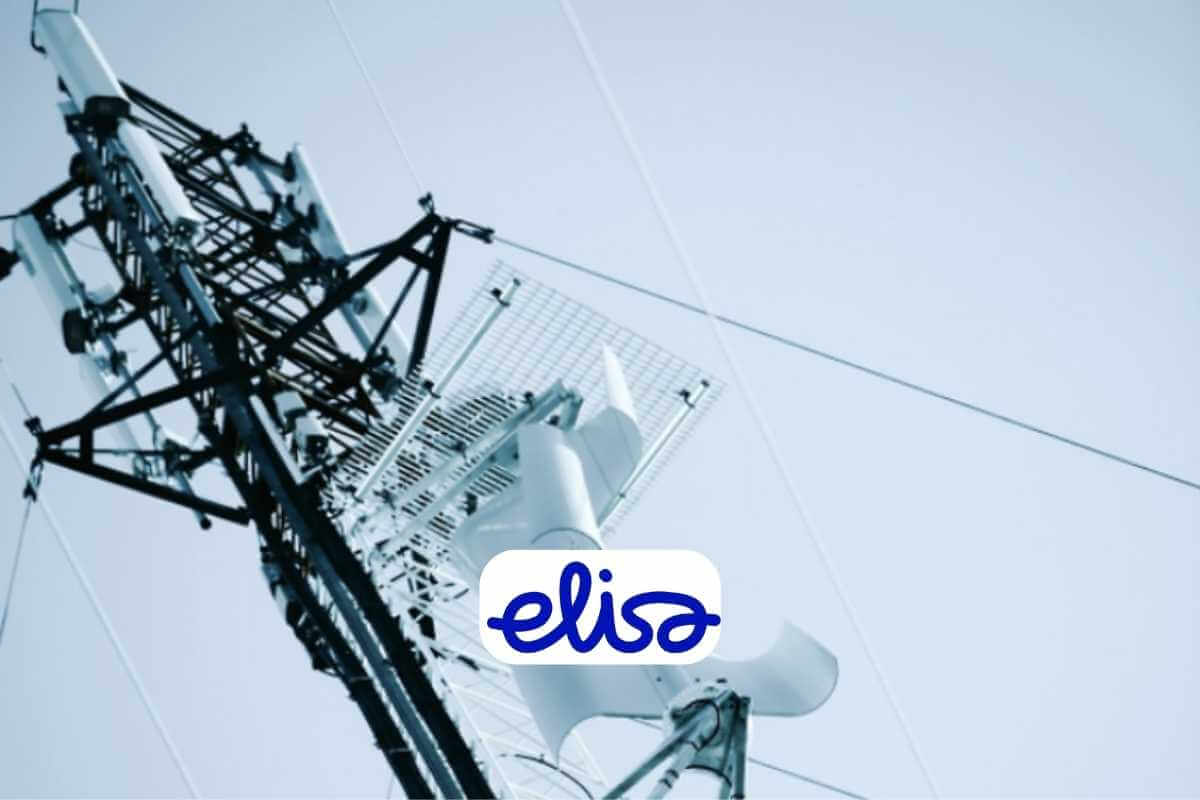
In a significant move towards sustainability, Elisa Estonia is set to equip approximately 100 mobile network base stations with new lithium batteries and introduce an AI-based energy platform. This solution allows for the disconnection of base stations from the electrical grid during peak energy consumption periods, utilizing the stored clean energy in the batteries.
Consequently, this advancement improves network performance, efficiency, and overall sustainability, according to Elisa.
Also Read: Ericsson Announces USD 169 Million Investment to Build Smart Hub in Tallinn, Estonia
Sustainable Network Solutions
Elisa Estonia emphasized the company's goal of equipping all mobile masts with 100 percent local renewable energy solutions within the next decade while reducing their ecological footprint.
"To date, Elisa has already installed solar power plants alongside 13 base stations. The adoption of lithium batteries and the AI platform represents the next step in fulfilling our long-term strategic objective by reducing energy consumption during peak hours through smart utilization of stored electricity," stated Elisa Estonia in an official release.
"Until Elisa's renewable energy solutions are fully deployed, the company will continue to rely on green energy from sources such as wind, water, solar, nuclear, biogas, or biomass for our base stations."
AI-Driven Energy Management
Depending on the specific location requirements, battery units with a capacity of 5-20 kWh will be installed alongside the base stations. Their operations will be managed by an AI-based system. This future-proof solution allows for the addition or removal of battery modules to meet changing demands and conditions. Lithium batteries are expected to have a lifespan of at least 10 years, compared to current lead-acid batteries which last up to 5 years.
Lithium Batteries for Longevity
Elisa Estonia highlighted the importance of leveraging lithium batteries, which are already familiar in the electric vehicle industry, as a significant step toward adopting green energy solutions. The intelligent system autonomously charges the batteries during periods of favourable electricity prices, and in the future, solar parks installed near the base stations will also be utilized for this purpose. The charging time of the batteries varies based on their size, taking up to four hours while optimizing the charging rate to preserve battery lifespan.
Also Read: Telia Estonia Partners With Sunly to Operate 100 Solar Powered Mobile Sites
Seamless Transition and Reliable Performance
A fully charged battery can sustain a base station's operations for three to six hours to compensate for high energy prices. The seamless transition from grid power to battery power occurs instantaneously without affecting service availability. To ensure operational continuity, Eslisa said a minimum of 30 percent of stored energy is always reserved to keep the base stations functioning, even during short-term power outages.
"We have designed the entire system to maximize battery lifespan. The AI technology applies optimal charging rates and ensures that batteries are not fully discharged too frequently, thus extending their potential usability," explained the Elisa Estonia team in their release.
"The pilot project utilizing AI-assisted lithium batteries has been running flawlessly for nearly six months, demonstrating their reliability."
Also Read: Elisa Powers Mobile Towers in Estonia With Solar Energy
Elisa has announced that new batteries will be installed at around 100 base stations this year, with exact locations determined based on the needs of essential services and priority of the stations. The plan is to continue expanding the number of base stations fitted with lithium batteries in the coming years.
Elisa's goal is to reduce carbon emissions and use resources sustainably by promoting energy efficiency and adopting green energy solutions.















